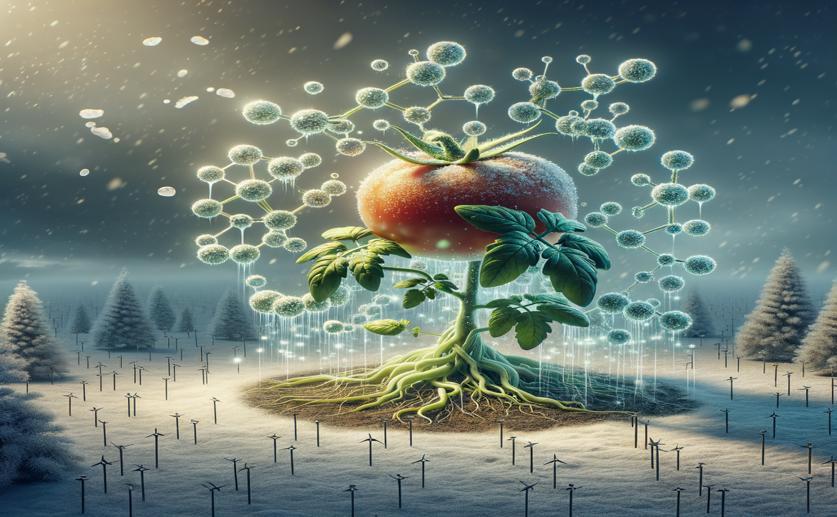
Plant Hormones Help Tomato Plants Survive Cold by Breaking Down Damaged Proteins
Jenn Hoskins
19th August, 2024

Image Source: Natural Science News, 2024
Key Findings
- Researchers at Zhejiang University found that strigolactones help tomato plants tolerate cold by regulating autophagy and protein degradation
- Cold stress causes an accumulation of damaged proteins in tomato plants, which strigolactones help reduce by enhancing autophagy
- The study identified that the transcription factor HY5, activated by strigolactones, is crucial for initiating autophagy and improving cold tolerance in tomatoes
References
Main Study
1) Strigolactones positively regulate HY5-dependent autophagy and the degradation of ubiquitinated proteins in response to cold stress in tomato.
Published 19th August, 2024
https://doi.org/10.1111/nph.20058
Related Studies
2) Autophagic pathway contributes to low-nitrogen tolerance by optimizing nitrogen uptake and utilization in tomato.
3) Impairment of the ubiquitin-proteasome system by protein aggregation.
Journal: Science (New York, N.Y.), Issue: Vol 292, Issue 5521, May 2001
4) Integration of low temperature and light signaling during cold acclimation response in Arabidopsis.



 15th August, 2024 | Jim Crocker
15th August, 2024 | Jim Crocker